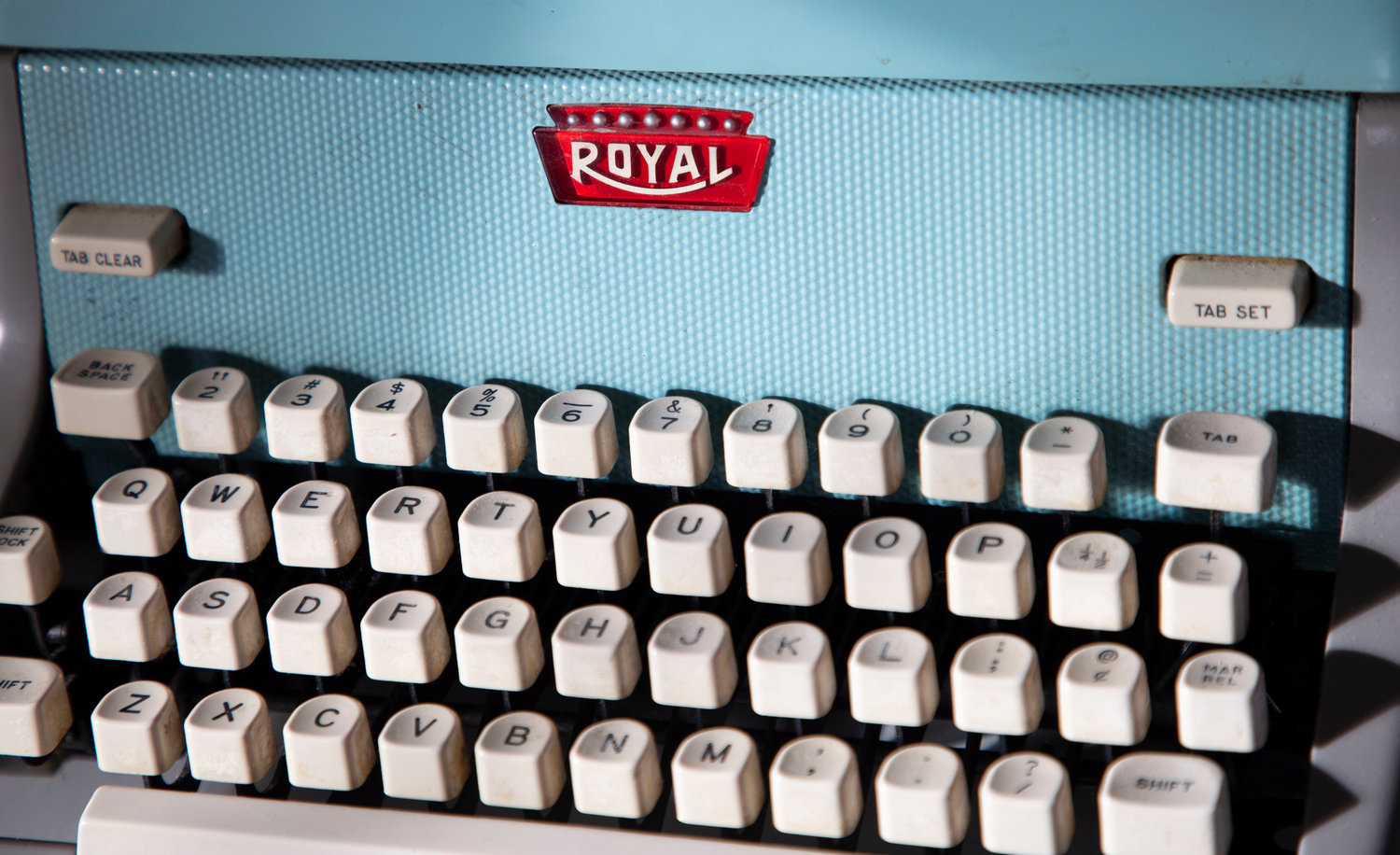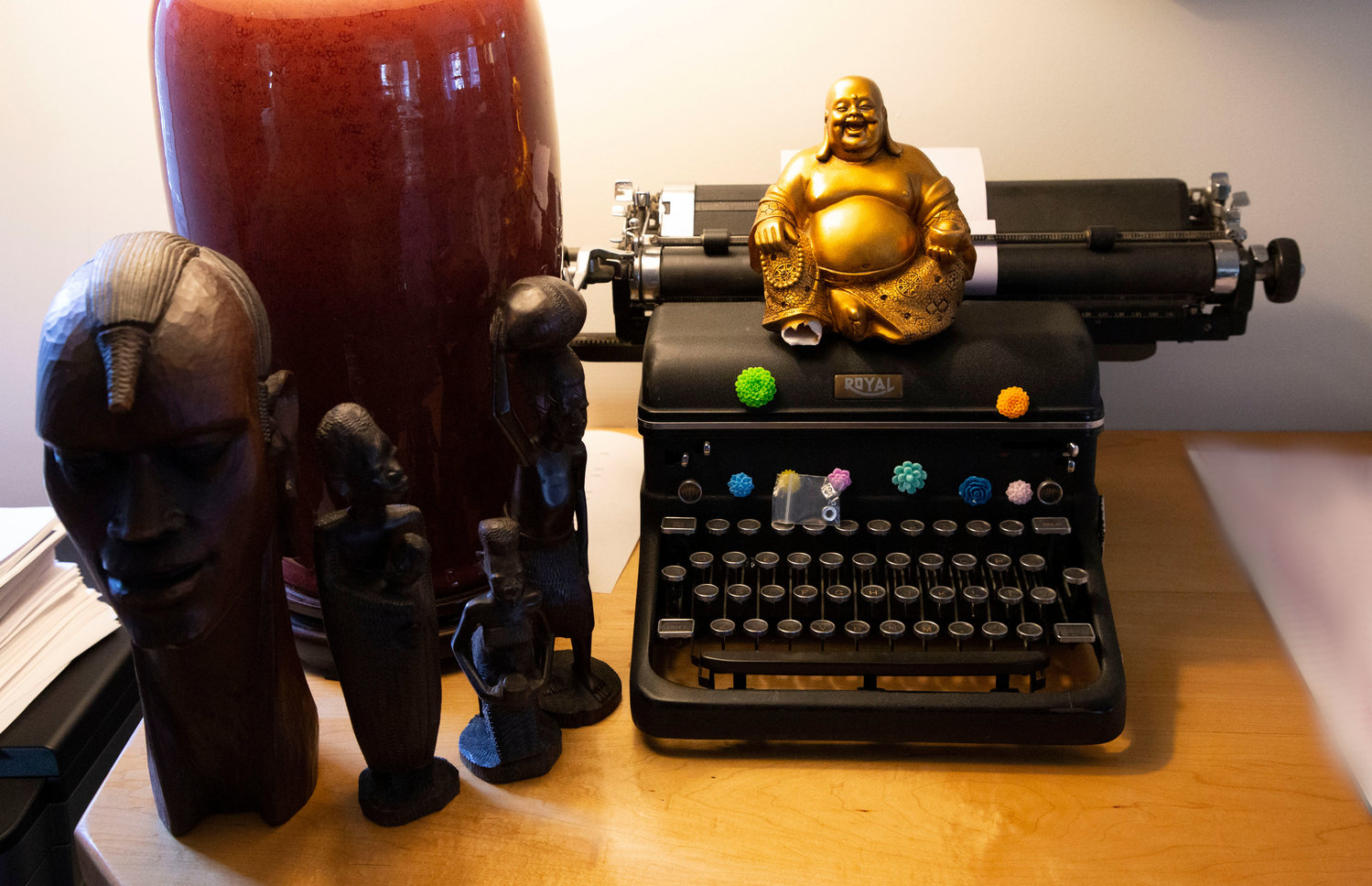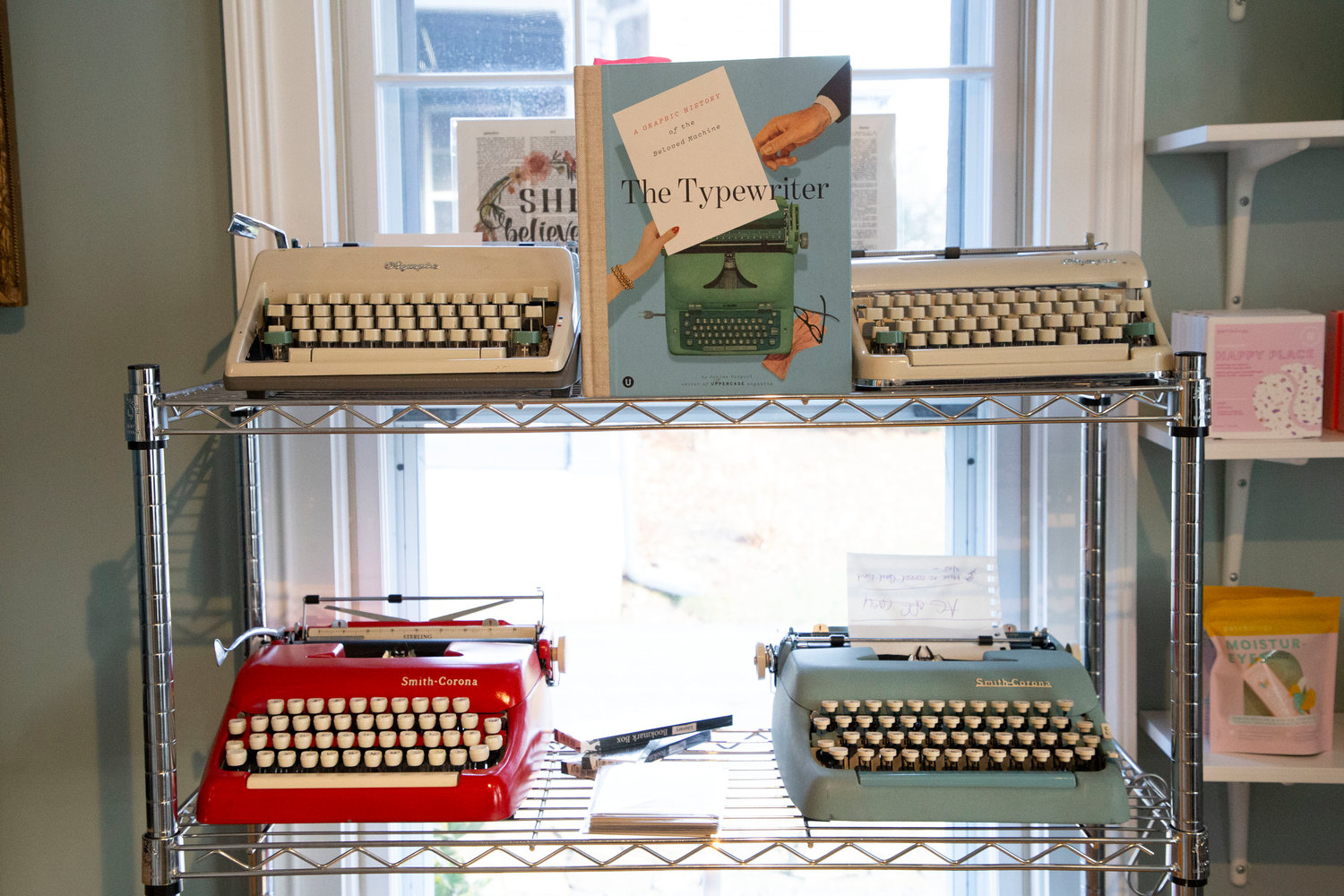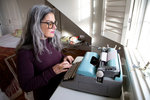Bristol resident spreads knowledge and joy via vintage typewriters
Manual typewriters occupy a pretty small slice of human history, but for Bristol's Alayne White, they represent something much larger.
This item is available in full to subscribers.
Please log in to continue |
Register to post eventsIf you'd like to post an event to our calendar, you can create a free account by clicking here. Note that free accounts do not have access to our subscriber-only content. |
Day pass subscribers
Are you a day pass subscriber who needs to log in? Click here to continue.
Bristol resident spreads knowledge and joy via vintage typewriters
It all started about six years ago, right here in Bristol. Alayne White of Constitution Street was enjoying one of her frequent visits to the late, great Second Helpings, the consignment store formerly located at the shopping Plaza at Gooding and Hope.
“There was always something good there,” said Alayne. “I was with my aunt and I looked at this typewriter, a big old Royal. I started to press the keys and I heard that ‘ding’ sound, and as soon as I heard that I got this really crazy rush.”
Alayne’s aunt provided the context. “She said, well, that's because that's the one Grandma had…she typed all these recipes on index cards for me when I was 21. So I bought it.”
Once Alayne got it home and started typing on it, she realized that her writing was completely different. For one, she was staying in the moment — along with whatever mistakes she was making. “I realized then that these typewriters weren't being made anymore,” she said. “It was like this revelation…so I started buying them like a lunatic,” she laughed.
“I had to have them all.”
These days “all” is about 60. “I had to stop (collecting) because it was obviously getting out of control.”
What’s old is new again
If you know Alayne, you know she’s not about to keep her magic to herself. Before COVID ruined things for a spell, she was taking (some of) her typewriters out on the road.
“Wherever I could find a fair, I would let the kids play with them — their whole being would light up and they would be in the present moment.”
For Alayne, it would quickly become apparent that this object, so familiar and nostalgic to anyone over a certain age, was a real novelty to anyone under a certain age. “They would ask for another piece of paper, because they made a mistake,” she said. “They wouldn't know what to do since they couldn’t just delete it.” Kids would would also ask about the absence of exclamation points on some of the old typewriters. “I would say that's because people used to talk with grammar, not in punctuation — so we would have this whole discussion about that.”
“And then another question they would ask is how do you change the colors and what if I want to make it bigger? They didn't know that you couldn’t. There was something so beautiful and humbling about the whole experience.”
Oppression and opportunity
Manual typewriters occupy a pretty small slice of human history — the first to be commercially produced hit the market in the 1870’s, and they began to be widely supplanted by electric typewriters in the 1960’s. In that window of time, they had an interesting and unpredictable impact on women’s work, something that is well-represented in Alayne’s collection.
“This one is interesting,” she said, pointing out a slightly more compact mid-century model that comes in its own carrying case. “They started to make portable ones, for male journalists.”
Alayne also collects manuals and books about typewriters, full of ads featuring beautiful female secretaries appreciating the typewriters provided to them by their male employers — especially when those typewriters are fetching hues of yellow, pink, and turquoise. “Look at his fabulous turquoise color, and it's got the matching book,” said Alayne. “This is when when they started to do color typewriters, when women really started to go to college because they thought that it would make more women type.
“Look at her. She's very happy. She's typing.”
While sexist to contemporary sensibilities, that was not likely the intent of Christopher Latham Sholes, inventor of the typewriter, who said, “I feel that I have done something for the women who have always had to work so hard. This will enable then more easily to earn a living.” His words were prophetic, as indeed, the typewriter provided an entry point into the business world for women who had up until this point mostly been employed in more traditionally female jobs. “It’s one of my favorite quotes,” said Alayne.
Alayne’s collection even includes a couple of international ones, including a minimalist, compact one from the Netherlands, and another from Germany, a brand (Voss) that dates to WWII — a time when that company (and many others) manufactured typewriters that had a special key that typed the runic emblem of the SS (Schutzstaffel), the Nazi paramilitary organization. The symbol, which looks like two s-shaped lightening bolts, is no longer on this Voss typewriter, if ever it was.
The collection also includes a very local typewriter — the one that belonged to Joan Prescott, the former Rogers Free Library director who served in that post for 30 years. She gave the typewriter, which went to college with Joan and her two sisters, to Alayne when she retired from the library a few years ago.
“So this one's fun,” said Alayne of another, one of the first in her collection, which types entirely in cursive. “That's super collectible even though it's not in mint condition. It’s very unusual to have the font like that.” Of all these, though, Alayne’s favorite typewriter is one that is just like one her grandmother had in her bedroom. It holds a position of honor near a sunny window on the first floor. “There's something about coming downstairs and seeing this; it’s a connection with my grandmother.”
Incorporating her passion and her business
“You know when I first opened my spa I'd see people on the street and they’d say ‘Oh, there's the spa lady’,” said Alayne. “And then when I started collecting typewriters people were like, ‘Oh there's the typewriter lady’. It’s just funny how you get the label.”
She has plans on how to mesh these disparate interests, plans like retreats that will incorporate writing and self care. She also plans to carve out a space in her home where her collection can be prominently displayed for visitors to enjoy. “My ultimate goal is to have this space be partly typewriter museum, gardens, writing, spa services, retreats — a little bit of everything,” she said.
With all these balls in the air, you might wonder if there is anything Alayne can’t manage, and in fact there is one thing she admits the simply cannot do.
“I don’t know how to change a typewriter ribbon,” she said. “It’s a nightmare.”













